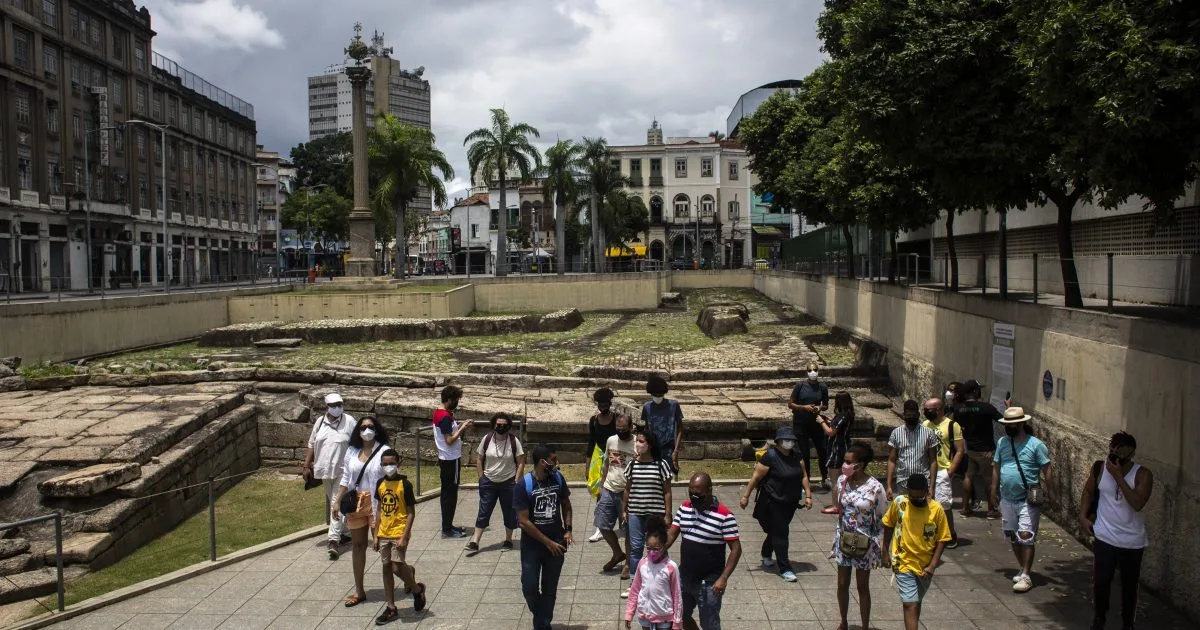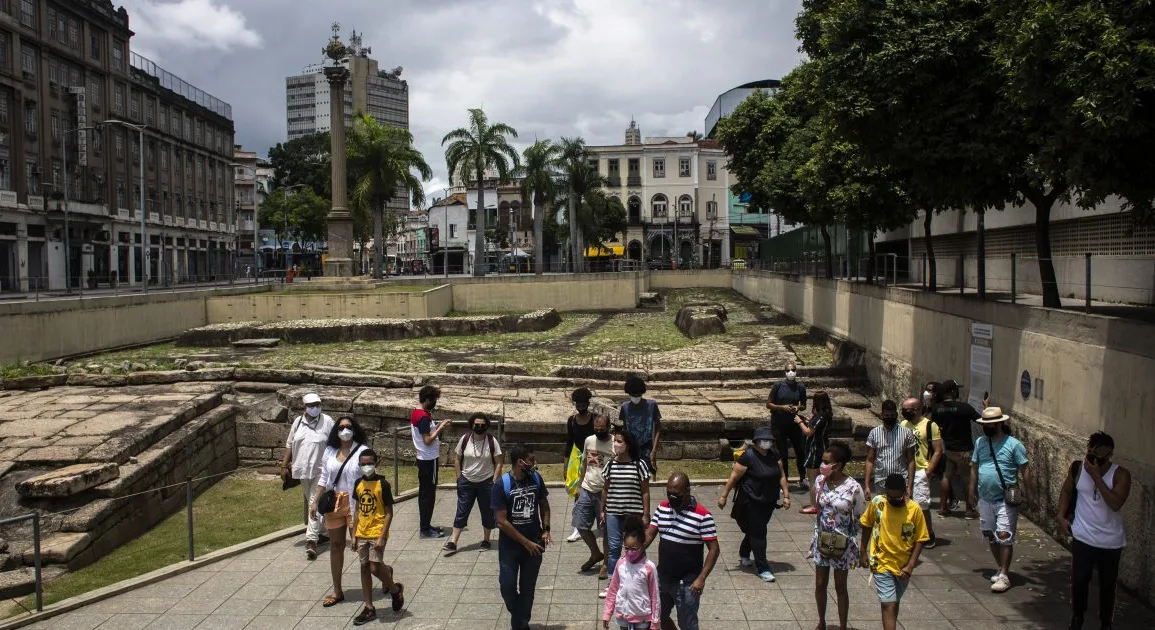
Last year, public prosecutors started investigating Bank of Brazil’s historical links to the slave trade. The large, government-owned bank was founded in 1808.
There are indeed links. For one, the bank’s largest shareholder at one point was José Bernardino de Sá. From the 1820s to the 1850s, the slave trader made a fortune from transporting around 19,000 Africans to Brazil.
The institution also allowed clients to declare enslaved black people as financial assets. They were used as collateral to guarantee loans. That’s an example of how “slavery is central to Brazil’s formation,” says historian Thiago Campos Pessoa.
The investigation is part of an emerging push for reparations in Brazil.
Brazil enslaved more people from Africa than any other country. Nearly five million kidnapped Africans arrived in Brazil. That’s more than 12 times the number taken to mainland North America, according to the Trans-Atlantic Slave Trade database. In 1888, Brazil became the last country in the Western Hemisphere to abolish slavery.
The country has so far mostly dealt with slavery’s legacy through affirmative action. For example, a 2012 law required public universities to reserve a certain number of spaces for black people.
But now there is a larger call for reparations, echoing movements in the United States and Europe. For example, Brazilian activist group Educafro sued the federal government in May 2022. The organization demands an apology and a fund to combat racism, among other measures.
Making amends for wrongs is biblical. But the issue of payment for the harm done by slavery is a difficult one. Sadly, most enslaved people in the United States, Brazil, and other countries were not compensated for their suffering. But no one alive today was personally involved in this historical wrong. Some say they should not be held accountable for the acts of previous generations. And where does the money come from? Taxpayers may feel unfairly burdened. Yet some descendants of enslaved people say that the damage and missed opportunity has repercussions through generations.
Even today, some black Brazilians describe experiencing discrimination based on their skin color. Black Brazilians are more likely to be poor or imprisoned. Half of Brazil’s people have African ancestry. But black or multiracial people make up only one-quarter of representatives in Brazil’s Lower House of Congress. They hold fewer than a third of managerial positions.
Pray for wisdom for lawmakers. And pray for the well-being of those whose families were hurt by slavery.
He has sent me to bind up the brokenhearted, to proclaim liberty to the captives, and the opening of the prison to those who are bound. — Isaiah 61:1
Why? The institution of slavery harmed many image-bearers. Generations later, countries and communities grapple with that legacy.


